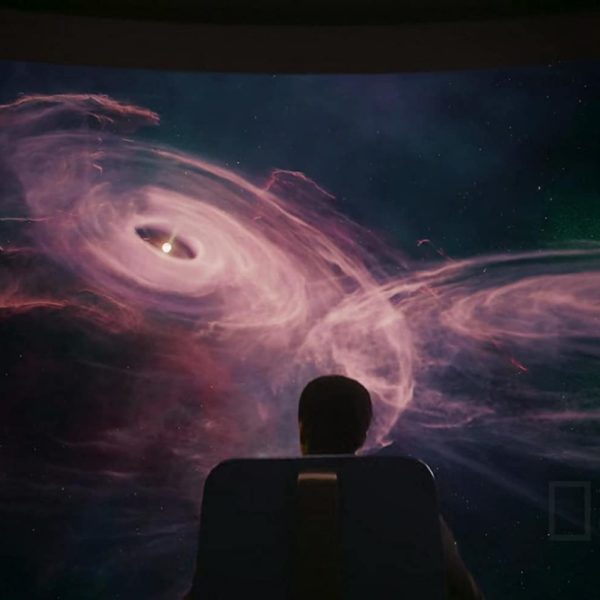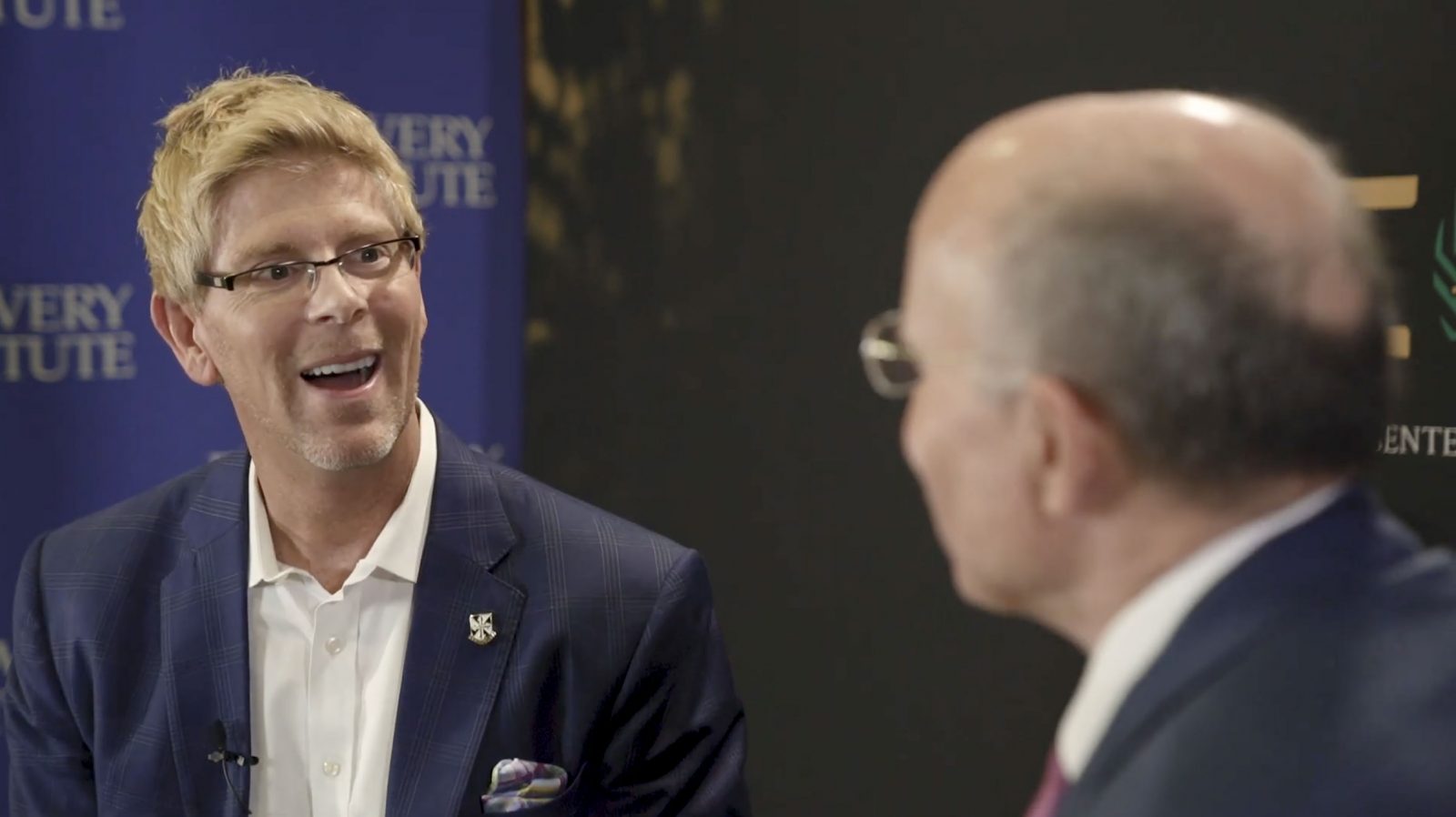


Jay Richards on the Art of Answering Theistic Evolutionists
On today’s ID the Future, philosopher Jay Richards offers advices on engaging with evolutionists over the issues of origins, evolution, and intelligent design. In his conversation with host Casey Luskin, he says that if someone tells you he’s a theistic evolutionist, first find out what he means by theism and evolution. The latter term, in particular, can have widely varying meanings, and the average lay persons who see themselves as theistic evolutionists likely see God as actively and creatively working in the history of life to steer evolutionary outcomes, including the origin of humanity. What they may not realize is that such a view takes them well outside the bounds of what academic theistic evolutionists generally mean by the term evolution, particularly those theistic evolutionists who publicly defend evolutionary theory generally. Richards says that these academics hold to an internally incoherent view in many cases, and he encourages intelligent design proponents to surface that incoherence whenever the opportunity arises. For those who are willing to consider the evidence for intelligent design, Richards lists what he sees as the most rhetorically effective lines of evidence to present to people. The occasion for the conversation is Richards’ two chapters in the recently released Harvest House anthology, The Comprehensive Guide to Science and Faith.

Jay Richards Dismantles Carl Sagan’s Passive Theist
On today’s ID the Future, philosopher Jay Richards and host Eric Anderson wrap up their conversation about a video where Carl Sagan plumps for atheism. At one point Sagan suggests that if we give up on the belief in God, then we realize that we’re on our own and instead of waiting around for God to save us, we can roll up our sleeves and save ourselves and our planet. Richards notes that Sagan’s argument involves a strawman view of the Judeo-Christian worldview, which is miles apart from the idea of sitting around doing nothing while waiting for God to save us. As Richards and Anderson discuss, it’s no coincidence that the Christian West invented universities, hospitals, and science. What about hypocritical Christians and relatively virtuous atheists? Richards and Anderson also tackle that one. Tune in to hear the rest, and check out Parts 1 and 2 here and here.

Jay Richards Talks God, Carl Sagan, and Word Games
On today’s ID the Future, philosopher Jay Richards, co-author of The Privileged Planet, continues a conversation with host Eric Anderson about Carl Sagan and a short video clip where Sagan fields questions about God. Sagan points out that there are different conceptions of God, but Jay asks, what’s his point? There are different conceptions of nature. That doesn’t mean that nature isn’t out there and that there aren’t true and false things that can be said about it. Also, when the vast majority of people speak about God, they have in mind a powerful, conscious Creator of nature. Sagan plays definitional games by redefining the meaning of “God.” Listen in to learn how, to what purpose, and to hear what Richards thinks would be a better approach for atheists such as Sagan.

Jay Richards: Before Carl Sagan Said It, Science Debunked It
On today’s ID the Future, Privileged Planet co-author Jay W. Richards sits down with host Eric Anderson to discuss the gold rush of extrasolar planet discovery and how the Privileged Planet hypothesis has held up since 2004. Richards teases an anniversary edition of The Privileged Planet in the works, and he and Anderson discuss the statement that Carl Sagan is perhaps most famous for. Richards explains how science had already disproven the famous Sagan claim by the time the astronomer first uttered it to millions of viewers in his documentary series Cosmos.

Is ID Bad Theology? No, but the Objection Is
On this ID the Future philosopher Jay Richards responds to Mark Vernon’s charge that intelligent design is bad theology. No, Richards says, the charge itself is based on bad theology, bad reasoning, and a faulty understanding of both intelligent design theory and theism. First, the theory of intelligent design doesn’t specify the identify of a designer or the specific means of causation. It merely makes an argument to intelligent design as the best explanation for certain features of the natural world. Second, even if it did involve arguing that the designer was God and that God had intervened at particular points in the history of the cosmos, such as in the origin of life or the emergence of human beings, it would hardly be blasphemy. Far from it. It would be orthodox theism, an outlook shared by theists as diverse as Christians, Jews, and Muslims, just to name a few. Under theism, God is understood as free and able to create both ex nihilo (out of nothing) at the beginning of creation, and within the created order. God, Richards says, “is under no obligation to conform to Mark Vernon’s rules of tidiness and propriety.” Vernon has mistaken a narrow deism for theism and then charged theists with blasphemy for considering God free to act within the created order. Richards’s commentary is taken from his concluding essay in the anthology Signature of Controversy: Responses to Critics of Signature in the Cell (Discovery Institute Press), available for purchase here. Richards is a senior fellow of Discovery Institute and co-author, with Guillermo Gonzalez, of The Privileged Planet: How Our Place in the Cosmos is Designed for Discovery.

New Cosmos Series Preaches the Religion of Materialism
On this episode of ID the Future, guest host Jay Richards interviews science historian Michael Keas about the new Neil deGrasse Tyson Cosmos television series and its “very impressionistic storytelling.” Starting with an episode titled “Ladder to the Stars,” Cosmos: Possible Worlds weaves a tale of chemical evolution that, according to Keas, fails to engage the tough problems required to build the first self-reproducing biological entity. Keas says it then it moves into a glib explanation for the origin of mind and human intelligence. As Richards and Keas show, evidence takes a back seat to storytelling in both this latest version of Cosmos and in its predecessors.

Jay Richards on Eat, Fast, Feast and Human Design
On this episode of ID the Future, Jay Richards discusses his new book Eat, Fast, Feast. Fasting is a traditional religious practice “that’s fallen on hard times,” he says. We “graze” instead. But there’s scientific evidence for the value of intermittent fasting: it reduces total calories while upping adrenaline and human growth hormone, and without reducing metabolic rates. All this in addition to the spiritual benefits that have been recognized across cultures for many centuries. There are simplistic “just-so” evolutionary stories in other diet and health books attempting to explain how our bodies became well adapted for intermittent fasting, but he argues that a much better explanation is that we were intelligently designed this way. In his conversation with host Rob Crowther, he summarizes his case.

Jay Richards at COSM Talks Kurzweil and Strong AI
On this episode of ID the Future, Andrew McDiarmid catches up with philosopher Jay Richards at the recent COSM conference in greater Seattle. The two discuss the history of George Gilder’s Telecosm conferences and how the first one gave birth to a book Richards edited and contributed to 18 years ago, Are We Spiritual Machines? Ray Kurzweil vs. the Critics of Strong A.I. Is the “singularity” coming, as Kurzweil argues there and elsewhere, when machines equal and then quickly surpass human intelligence? Does “machine learning” really mean learning? Will “Skynet” wake up? Jay describes Kurzweil’s sunny version of strong AI and the dystopian version. Then he argues the other side, namely that human beings possess something beyond the purely material, something even the most powerful computers will never possess.
Jay Richards on How Materialism Dismantles Itself, and the Self
On this episode of ID the Future, philosopher and Discovery Institute senior fellow Jay Richards shows how materialism is an acid that eats itself along with the self. Richards argues that it also eats all the immaterial things that make science work — all while posing as objective science. The interview is taken from Discovery Institute’s new Science Uprising initiative, featuring high-concept short YouTube videos and single-expert interviews touch on a wide range of subjects related to intelligent design, philosophical materialism, theism, atheism and modern Darwinism. Richards and other familiar faces are among the experts, along with two or three distinguished scientists who may be new to followers of ID the Future. Check it out here.
Read More ›